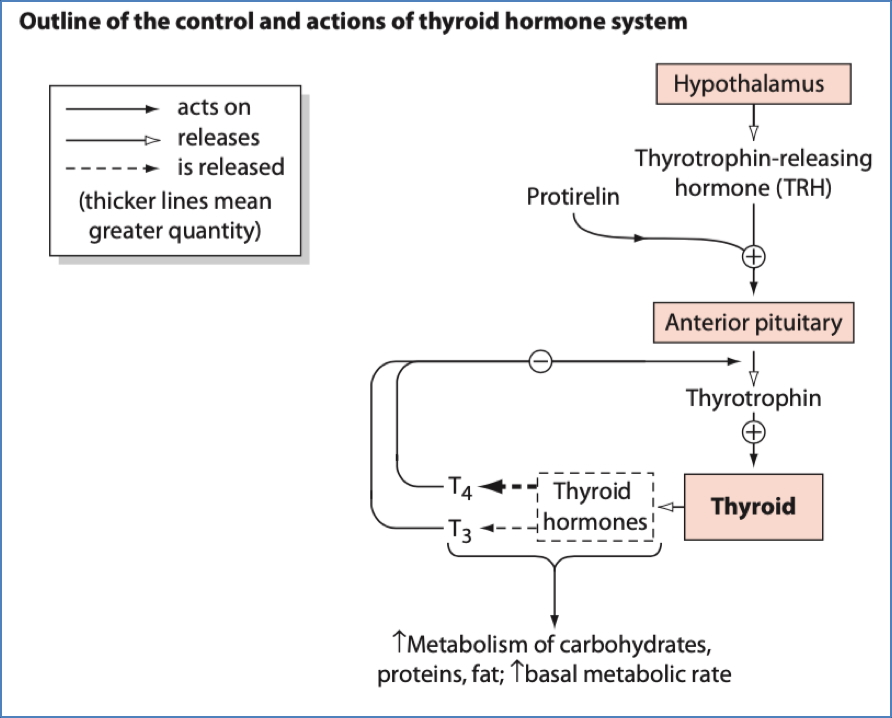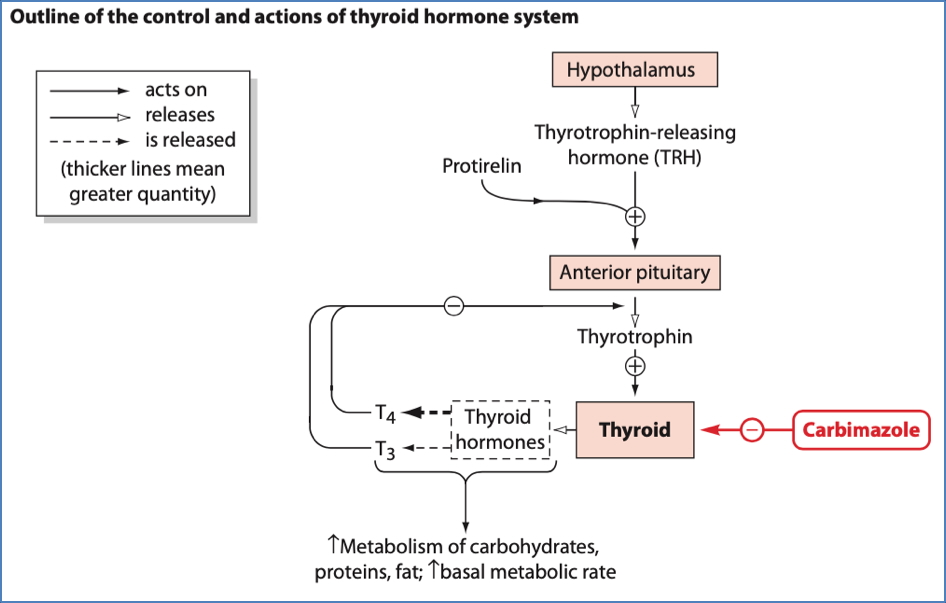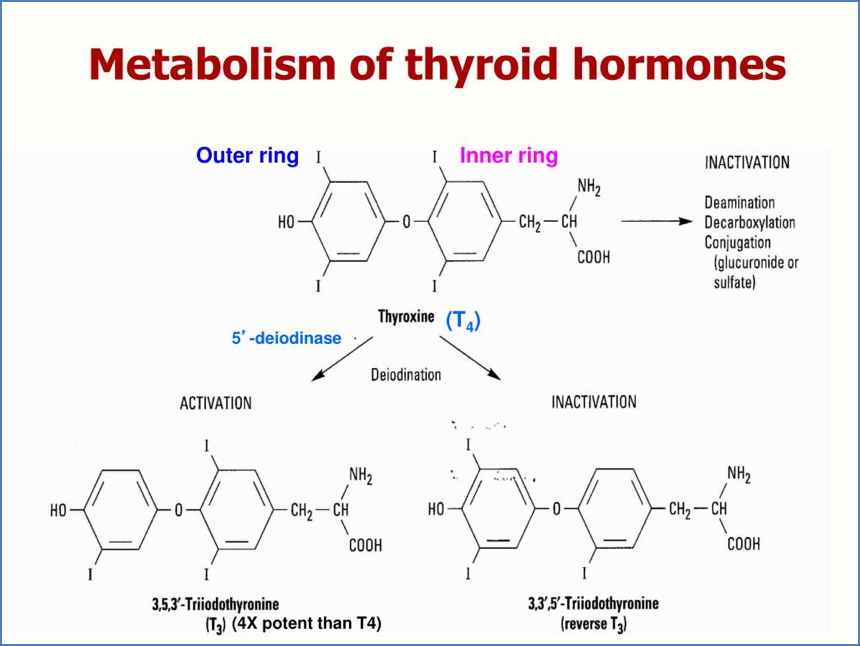Table of Contents
Overview – Thyroid Drugs
Thyroid drugs encompass both hormone replacements for hypothyroidism and inhibitory agents for hyperthyroidism. Management aims to restore or suppress thyroid hormone levels, which are critical for regulating metabolism, heart rate, and gastrointestinal function. This page covers thyroid hormone analogues, anti-thyroid medications, radioactive iodine therapy, and inhibitors of T4-to-T3 peripheral conversion.
Classification of Thyroid Drugs
Thyroid Hormone Analogues
Classical Agents
- Levothyroxine (T4)
- Liothyronine (T3)
Clinical Uses
- Hypothyroidism
- Commonly due to autoimmune thyroiditis (e.g. Hashimoto’s), post-thyroidectomy, or congenital deficiency
Mechanism of Action
- Hormonal replacement to restore basal metabolic rate, cardiac output, and gastrointestinal motility
- Levothyroxine (T4) is preferred:
- Less biologically active → longer half-life
- Can be converted peripherally to the active form T3 (Triiodothyronine) via deiodinase enzymes

Anti-Thyroid Agents
Thionamides – Inhibit Thyroid Hormone Synthesis
Classical Agents
- Carbimazole
- Propylthiouracil (PTU)
Clinical Uses
- Hyperthyroidism
- Includes Graves’ disease and toxic nodular goitre
Mechanism of Action
- Inhibit thyroid peroxidase, an enzyme essential for the synthesis of thyroid hormones
- Blocks iodination of tyrosine residues and coupling of iodotyrosines → reduced T3/T4 synthesis

Radioactive Iodine – Destroys Thyroid Tissue
Classical Agent
- Radioactive Iodine (I-125)
Clinical Uses
- Hyperthyroidism
- Alternative to surgery (thyroidectomy), especially in elderly or unfit patients
Mechanism of Action
- The thyroid gland selectively absorbs iodine, including radioactive isotopes
- I-125 delivers targeted radiation to destroy thyroid follicular cells
- Key caution: Excessive destruction → iatrogenic hypothyroidism
Side Effects
- Risk of hypothyroidism requiring lifelong levothyroxine replacement

Peripheral Deiodination Inhibitors – Reduce Active T3 Formation
Classical Agents
- Dexamethasone
- Iomeprol
- Lithium carbonate
Clinical Uses
- Adjunctive treatment in hyperthyroidism, especially thyroid storm
Mechanism of Action
- Inhibit peripheral conversion of T4 (inactive) to T3 (active)
- Reduce tissue-level bioavailability of T3
- Important in acute hyperthyroid states where rapid reduction in active hormone is desired

Summary – Thyroid Drugs
Thyroid drugs include hormone replacements like levothyroxine for hypothyroidism, and suppressive agents such as thionamides, radioactive iodine, and deiodination inhibitors for hyperthyroidism. Effective treatment requires balancing hormone levels to avoid both hypo- and hyper-metabolic states. For a broader context, see our Pharmacology & Toxicology Overview page.